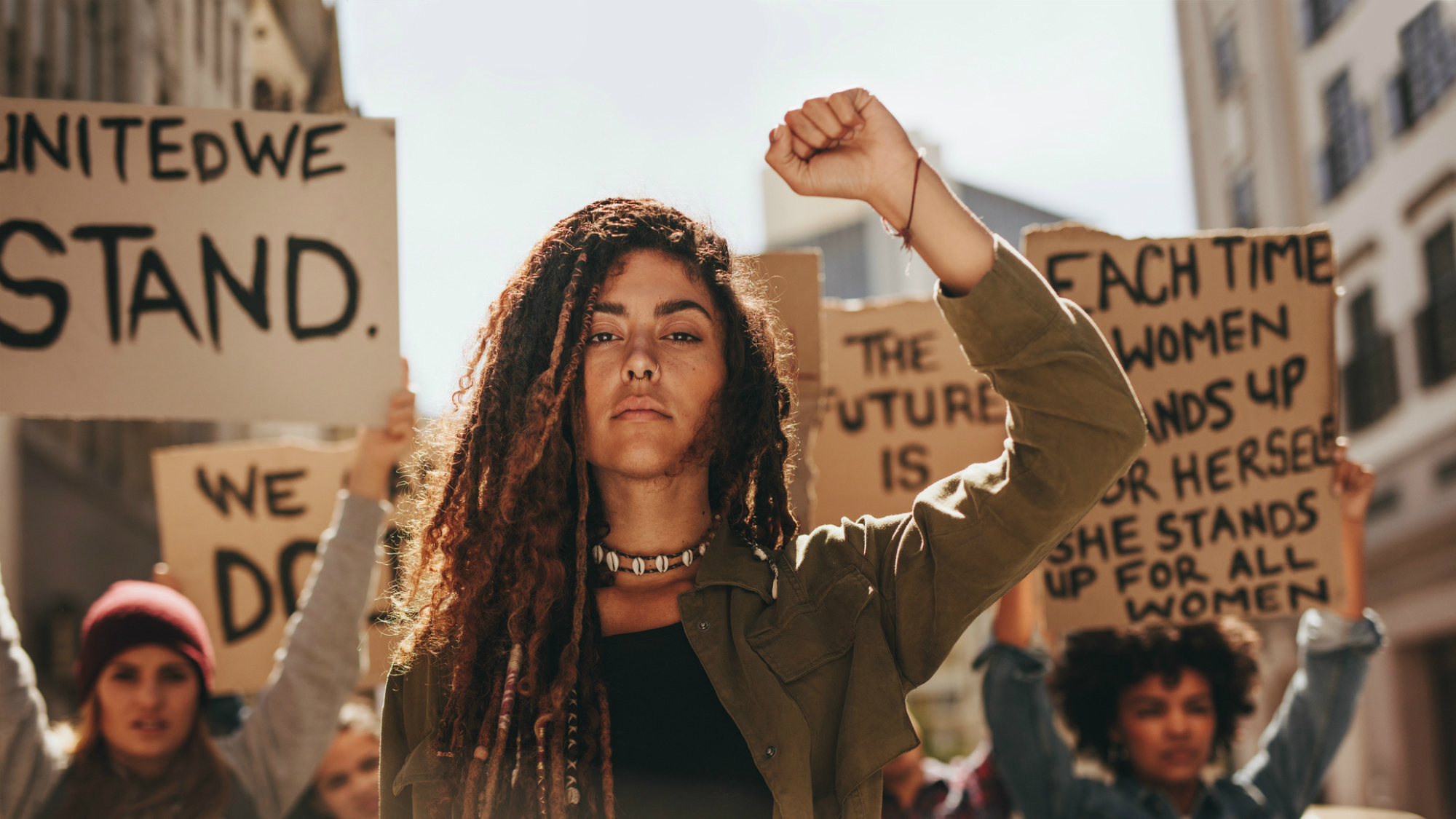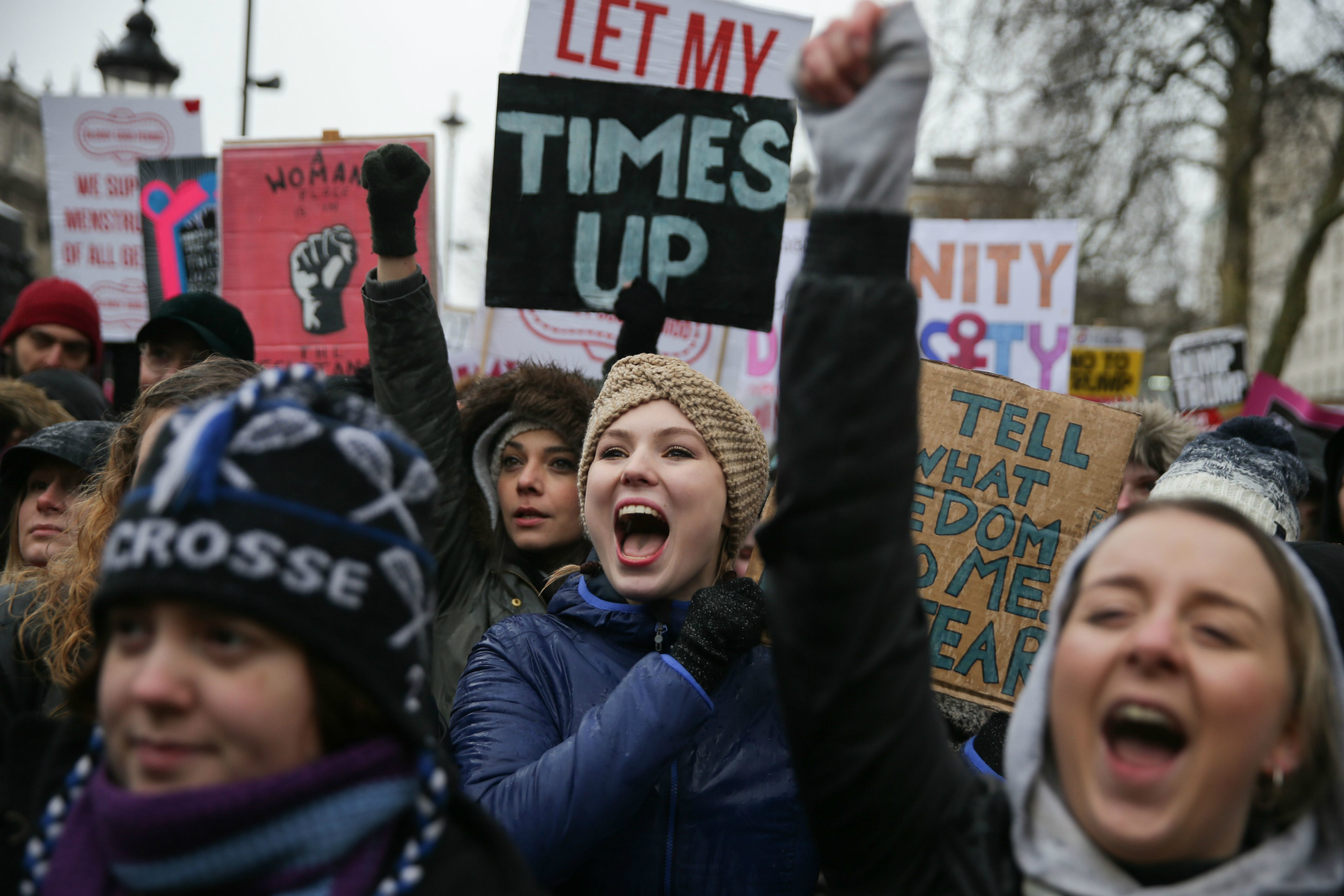I May Destroy You: sexual assault survivors have a few things to say
I May Destroy You, Michaela Coel's extraordinary drama of the year, has triggered many to speak out about their traumatic experiences. Lizzy Dening asks survivors what they want you to know – and how to help


I May Destroy You, Michaela Coel's extraordinary drama of the year, has triggered many to speak out about their traumatic experiences. Lizzy Dening asks survivors what they want you to know – and how to help
'If you can't remember it, how could you consent? Resisting the label of sexual assault victim, Arabella takes on the painful, freeing climb to who she could be,' so reads the succinct summary of I May Destroy You. It's true that sexual abuse and violence can leave you questioning everything – from who you can trust, to how you think about yourself. It can be hard to know how to deal with the immediate aftermath of rape, let alone the years to come, especially when you may not feel safe to seek help.
However, the main thing to remember is, like Arabella's character in I May Destroy You: you are not alone. Even if there aren’t people you can reach out to among your friends and family, you are part of a (tragically enormous) group of people. I May Destroy You is a complex drama about sexual consent, rape, trauma and its ramifications and we can all learn a lot from it. Before I May Destroy You hit our screens I had already learnt a lot. And one thing I’ve learnt through speaking to numerous survivors for my website Survivor Stories is that all of them have learnt a lot – about themselves, society, and self-care. So instead of offering my own advice, I’ve turned to some of them. Here's what they want you to know.

'Even if you think you're OK, seek help'
'Even if you feel ok, go to a GP and ask what services they can offer. I didn’t realise how badly it affected me until months later. Being able to talk to a counsellor was so beneficial and also taught me coping strategies. I could have saved myself a lot of mental anguish if I had been proactive in seeking professional help earlier,' says Chloe.
'I'm not what they did to me'
'Speaking about it has really been the thing that's shattered my shame. If there's no more shame, it can't have any hold over you anymore. And the ability to just say, well you know fuck it, I am still alive. They didn't kill me. I am still here. I’m not what they did to me. I'm not these events. Yes, it's part of me, but that's not all of who I am. I'm not the things that were done to my body.' Madeleine Black, author of Unbroken.
'I held in so much pent-up anger towards friends'
'Reach out. Friends. Family. Anyone you can trust. The day after the incident, a group of my friends took me out for the day to take my mind off what had happened, and so I could feel supported. Conversely, be prepared for some people to (often unintentionally) say the wrong thing. Perhaps they say something judgmental. If they do, talk to them about it, even if not right away. I held in so much pent-up anger towards some of my friends,' says Chloe.

'Fantasise about sautéing his balls for as long as it helps'
'You will feel angry, very angry. Don't be scared of it or disown it. Society doesn't like angry women and especially not women who are angry at men. Your anger is justified but it won't stay directed at the piece of scum who thought he had a right to your body. You'll get angry at everyone who lets you down, gets in your way or fails you.
Celebrity news, beauty, fashion advice, and fascinating features, delivered straight to your inbox!
'Plenty of people will tell you you must work towards forgiving him. People say this because your anger, trauma and distress make them uncomfortable. It’s their problem, ignore them and stay away from them. Fantasise about sautéing his balls for as long as it helps,' says Sophie.
'There's no right or wrong way to heal'
'Learn to listen to your mind and body. When it first happened I carried on getting the bus [where I had been assaulted] because I was determined not to let them win. That gave me feelings of empowerment. However I learnt by trial and error if I was feeling hormonal, low or anxious to not put myself in that scenario. There is no right or wrong way to heal or beat it,' says Chloe.
'I focused on wanting to feel strong'
'The gym became a real lifeline for me to get out of my head and feel stronger. A lot of it was focused around not wanting to feel weak. I never want to feel like I am in a situation where I can’t fight back, even if it’s only a tiny little bit, I want to feel strong,' says Lucy.

'I've tried so many things, I went for transformational breathwork, I've taken San Pedro which is a little bit like ayahuasca [a South American brew with powerful hallucinogenic properties claimed to open your mind and heal past trauma], I have done sweat lodges, I've used hypnosis, I've been to see a shaman for years... dancing, drumming, as well as lots of talking therapy.' Madeleine Black.
'It won’t go away, but it will get easier'
'I genuinely thought for a long time I wasn't gonna make the first anniversary. But you get past that. And then you think well, I've got past the first anniversary, and then bit by bit things get easier. And it's all little achievements. And then they build up until it doesn't hurt as much anymore, and you don't think about it as much,' says Becky.
And finally, our advice for friends and family of survivors
'My mum put me in a blanket and cocooned me and lit some candles, and just let me scream it out and cry until I had nothing left. I would advise any ally or friend of a survivor to offer this service,' says Alice.
'I think it’s important for friends to be aware of their prejudices and aware of their biases and aware of the messages they've received. To really think about those and reflect on them. That your friend wasn't to blame. They didn't do anything wrong. And if that's true for your friend, well, it's gonna be true for everybody else's friend, as well,' says Becky.
* Helplines and advice can be found at:
Modern Slavery Helpine (modernslaveryhelpline.org)
* I May Destroy You is on BBC iPlayer
Lizzy Dening is a freelance journalist and editor, specialising in writing about sexual violence, women’s rights, opinion pieces and health. Also, when in need of a break from the bleaker stuff, the odd travel piece or film and book review.
She’s the founder of Survivor Stories, a website featuring interviews with survivors of sexual violence in their own words, and is co-vice chair of Peterborough Rape Crisis Care Group. She’s passionate about listening to survivors, helping them share their stories and shutting down victim blaming. As you might imagine, she’s a right laugh at dinner parties.
She’s been previously published by titles including The Guardian, Grazia, Elle, The Independent, iPaper, the Telegraph, Huffington Post and Women’s Health, and has been digital editor at two national titles. Now self-employed, she considers her cat Moomin her closest colleague, although he’s unreliable when it comes to the tea-round.
Originally from Cambridge, she now lives in Peterborough where she regularly organises events including an annual Reclaim the Night march, feminist film screenings and fundraisers for Peterborough Rape Crisis. She’s also a volunteer at a local food bank (bag packing rate: ninja level) and does occasional PR and comms work for charities and causes. There’s rarely a petition she hasn’t signed.
Avid reader and book club botherer; champion of niche feminist icons; currently learning to play football; wears too much leopard print; sometime poet; Kinder Egg enthusiast; spends a lot of time thinking about going for a run. Favourite places include Sheringham beach, New York, Vienna, Hawaii, obscure museums, the local park, and bookshops.
Currently in the process of launching her first podcast with her (award-winning) podcast producer husband, Ross Sutherland – watch this space…
